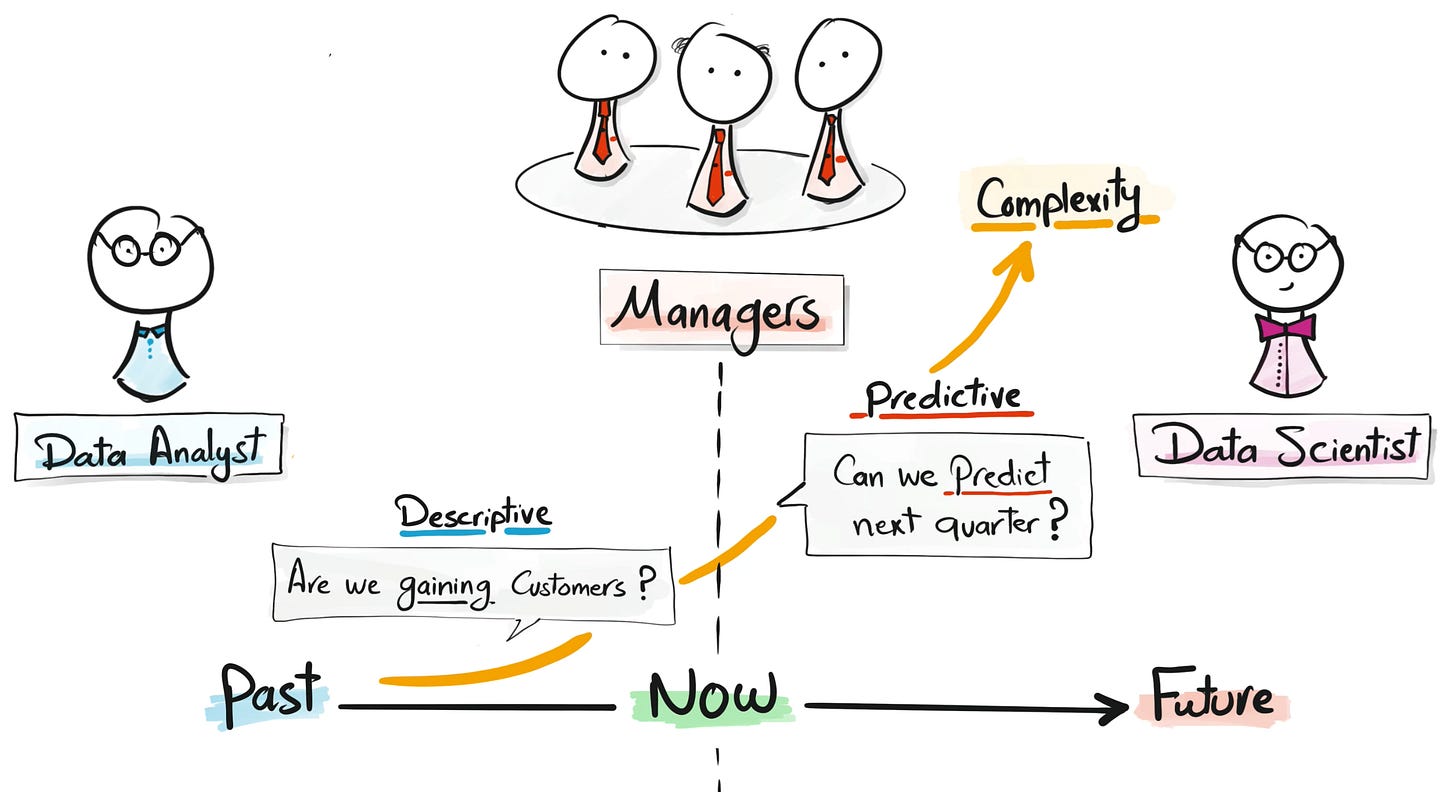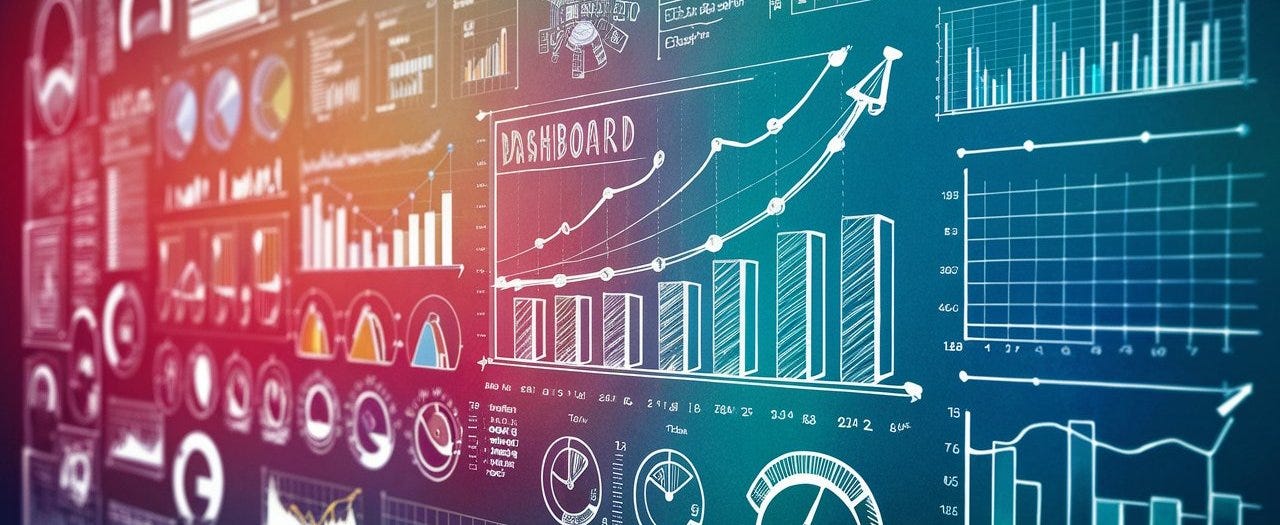The Ultimate Data Science Roadmap (2025) – Built by a Data Expert
A step-by-step learning path based on real projects, not buzzwords.
Hey friends, Happy Thursday!
Everyone’s talking about AI, ChatGPT, LLMs… and suddenly “Data Scientist” sounds like the most exciting role in tech.
But the moment you start googling how to actually become one?
Boom!!! 200 tools, 50 buzzwords, and zero structure.
That’s why I put this roadmap together - based on real projects, real skills, and how the job actually works in the field.
So grab a coffee. Let’s talk..
For more details:
📘 Notion Roadmap Template → Click here
📺 Full YouTube Walkthrough → Click here
What Do Data Scientists Actually Do?
When the business asks, “Can we predict what’s going to happen?”
That’s when the data scientist walks in.
Forget dashboards. Now we’re building smart systems that learn from data and guide decisions.
Analyst = Describes the past
Scientist = Predicts the future
Here’s what the process actually looks like:
Collect messy data from databases, logs, APIs
Prepare it (clean, join, fix .. 70% of the job is here)
Explore with notebooks and charts → look for patterns
Engineer Features like “days since signup” or “total spend”
Train a Model to make predictions (churn, sales, risk)
Visualize Output with tools like Tableau or Power BI
Trigger Real Action → pricing changes, campaigns, customer outreach
Your Data Science The Roadmap
I’ve Broken the Roadmap into 2 Phases…
Phase 1: Foundations and Data Analytics Skills 📊
This phase builds your core skills: collecting, cleaning, analyzing, and visualizing data. By the end, you’ll be ready for machine learning.
Statistics
Helps you summarize and interpret data. Focus on: Mean, Median, Distribution, Correlation, and Probability.
Math
Gives you the intuition behind models. Learn basics of linear algebra & calculus.
Programming Languages
How you “talk” to data and build models:
SQL: For querying, filtering, joining data
Python: The core language for everything
GitHub: For version control + building your portfolio
(Optional) R: Useful for heavy analytics or academia
Data Preprocessing
You’ll clean, shape, and combine datasets:
Pandas: Structured data (tables)
NumPy: Numeric arrays, vectors, and calculations
PySpark: Preprocessing large-scale data (big data)
Data Visualization
Translate numbers into insights:
Plotly / Matplotlib / Seaborn: Python-based visuals
Tableau or Power BI: Dashboards for stakeholders
Phase 2: Foundations and Data Analytics Skills 🤖
Now it’s time to go beyond analysis and start building models that learn, predict, and scale.
Classical Machine Learning
Core concepts to solve real business problems:
Supervised vs Unsupervised, Regression, Classification
scikit-learn: All-in-one ML library for training + evaluation
ML Deployment
Make your models usable in real products:
Streamlit: Turn models into simple web apps
MLflow: Track, manage, and deploy experiments
Deep Learning
Learn to model complex data (text, images, sequences):
Core concepts: Neural Networks, CNN, RNN
PyTorch: Flexible, research-friendly
TensorFlow: Production-grade, scalable
LLMs & GenAI
Work with powerful pretrained models like GPT:
Learn: Transformers, Prompting, RAG, Agents
LangChain: Build AI apps with LLMs
Hugging Face: Access thousands of open-source models
Platforms
Modern data science runs in the cloud:
Learn Azure, AWS, or Databricks basics
Manage notebooks, datasets, models, and pipelines






